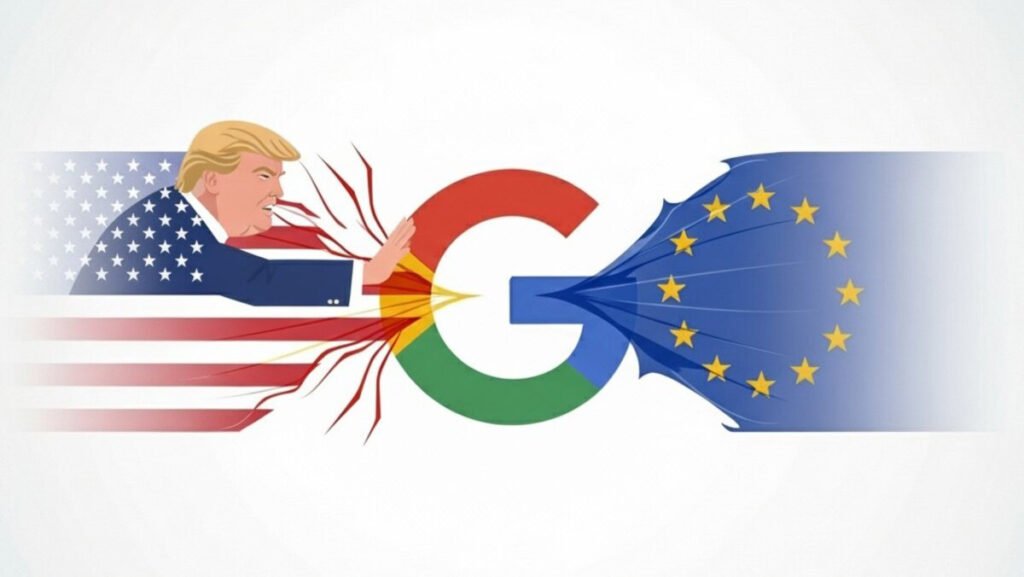

The long-standing conflict between US tech giants and European regulators has taken another sharp turn. This time, it’s drawn a strong reaction from the highest level of American politics. On Friday, President Donald Trump fired back at the European Union after it hit Alphabet Inc.’s Google with a substantial €2.95 billion ($3.5 billion) antitrust fine, calling the action “very unfair.”
The EU fined Google, and now Trump is threatening to respond
President Trump’s reaction went beyond a simple statement of disapproval. In a social media post, he argued that the fine was a discriminatory action against an American company and threatened to take action. He specifically warned that his administration would not allow the fines to stand and that he might initiate a Section 301 investigation. The latter is a procedural measure that could lead to retaliatory tariffs against the EU.
This isn’t the first time the president has pushed back against Europe’s regulatory stance toward US tech firms. He has long been a critic of what he sees as a pattern of targeting American companies. This recent fine on Google—on top of previous penalties against companies like Apple—appears to have been the final straw. The president’s comments came just a day after he hosted top tech executives, including Google’s Sundar Pichai, at a White House dinner.
The situation adds new tension to already strained US-EU trade relations, particularly as the two sides recently agreed to a trade framework. The EU has shown an increasingly firm resolve to regulate big tech’s influence in its market. However, the threat of new tariffs from the US adds a complex political layer to the ongoing legal and business dispute. The coming weeks will show whether the rhetoric translates into real trade action, further complicating a relationship that is already at a pivotal moment.
The huge $3.5 billion EU fine on Google
The EU’s move is its fourth major antitrust penalty against Google. It was based on findings that the company abused its dominant position by favoring its own digital advertising services. According to the European Commission, this practice has harmed rival publishers, advertisers, and even consumers. The fine came with a strict order for Google to end its “self-preferencing” behavior within 60 days. The EU has also hinted at a potential “structural remedy” that could force Google to sell off parts of its AdTech business if it doesn’t comply.
Google, for its part, immediately announced its intention to appeal the fine. In a statement, the company’s Vice President for Regulatory Affairs, Lee-Anne Mulholland, said the decision “imposes an unjustified fine” that will “hurt thousands of European businesses.”
Reactions to the situation
The complex scenario has led to different opinions from experts. There are views both for and against the EU movement. Zahra Timsah, co-founder and CEO of i-GENTIC AI -an AI governance platform—said that, “If regulators were serious, they’d mandate interoperability and transparency, not write giant checks to themselves.” “Fines don’t fix markets, they fund treasuries and if Google’s ‘crime’ is building tools that work too well, then we’ll get mediocrity as strategy. Wait until the cost trickles down to advertisers and consumers,” Timsah added.
On the other hand is Cori Crider, senior fellow at Future of Tech Institute and an honorary professor at UCL Laws. “Europe made an important stand for the rule of law today by pressing ahead with this first-step fine in the face of Trump and Big Tech’s bullying,” Crider stated. “But I want to be clear: only a break-up will fix Google’s monopoly, unlock this €120bn market for European business, and save our dying media sector.”
The post Trump Threatens EU with New Tariffs Over Google Antitrust Fine appeared first on Android Headlines.


